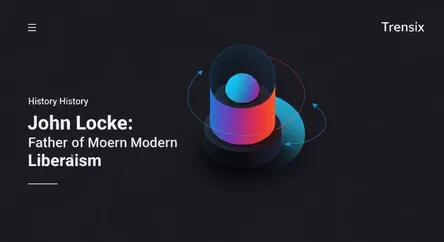History
John Locke: Father of Modern Liberalism

An introduction to John Locke, the Enlightenment philosopher whose ideas on natural rights and government by consent shaped modern democracies.
What is it?
John Locke (1632-1704) was a highly influential English philosopher and physician, often called the "Father of Liberalism." A key figure in the Enlightenment, his work revolutionized political philosophy. Locke's core ideas include the theory of "tabula rasa" (the mind as a blank slate at birth), and the concept of natural rights, which he defined as "life, liberty, and property." He argued that legitimate government is based on a social contract, meaning it can only rule with the "consent of the governed." If a government violates these natural rights, Locke contended that the people have a right to revolution.
Why is it trending?
Locke's ideas remain profoundly relevant because they form the bedrock of modern liberal democracy. His principles were a direct and powerful influence on the American Revolution, with his theories on rights and governance echoed in the U.S. Declaration of Independence. Debates today about individual liberty, limited government, and the role of the state frequently return to Lockean concepts. His philosophical inquiries into knowledge, religious tolerance, and selfhood continue to be studied and cited globally, cementing his status as one of the most important Western thinkers.
How does it affect people?
Locke's philosophy directly impacts the daily lives of people living in democratic societies. The fundamental belief that citizens possess inalienable rights that a government cannot take away is a Lockean principle. The entire structure of government by the people, through elected representatives, is an application of his "consent of the governed" theory. Furthermore, his arguments for the separation of church and state provide the foundation for religious freedom in many nations. His work essentially provides the intellectual justification for the rights and freedoms that many citizens now take for granted.